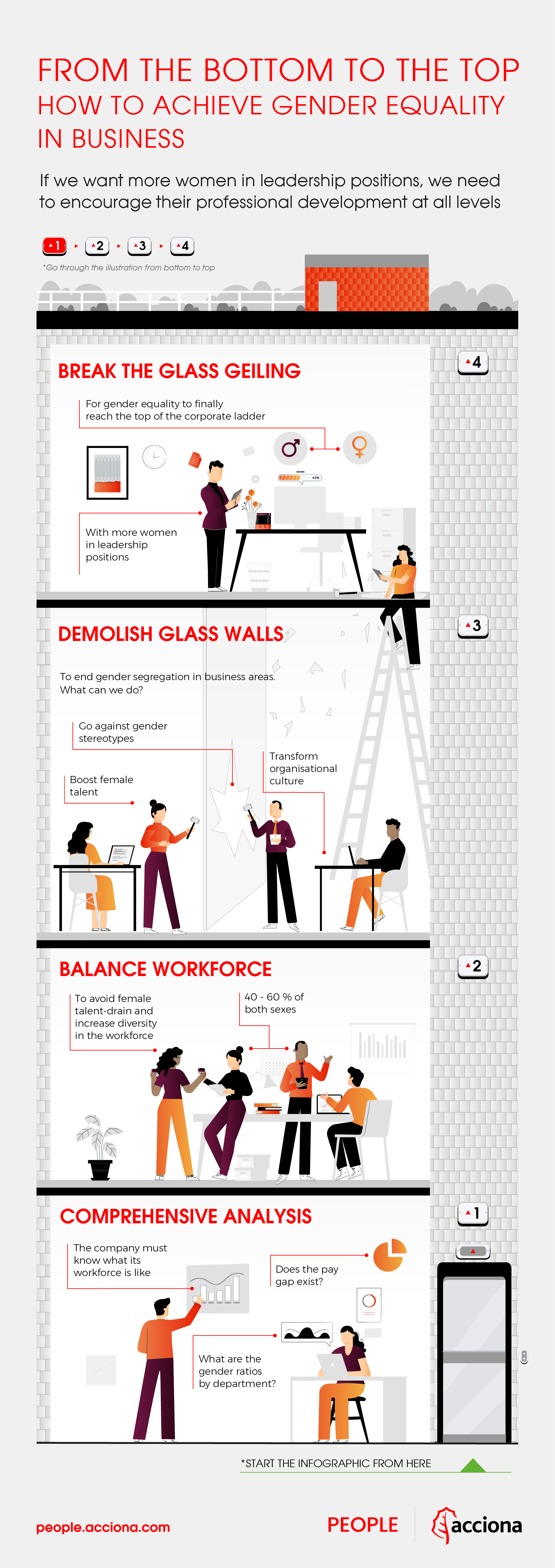“The pay gap in Europe between men and women is 14.1%”.
Not to mention that most strategies and proposals to implement gender equality at work by facilitating the reconciliation of work and family life are still ineffective. Women with children under 15 are 7.5 times more likely to work on part-time contracts than men with children in the same age range, twice as likely to be unemployed, and 20% more likely to have a temporary contract. In this article we talk in depth about more inequalities.
In this sense, the role of business is crucial. By implementing efficient measures, they can make society fairer and more egalitarian. A transformation that, in addition, has many advantages for the private sector
Benefits of Implementing Gender Equality for Businesses
Gender inequality is not only an urgent moral and social problem, but also a critical economic challenge. Women’s failure to reach their full professional potential hurts the business world, as the talent of half the population is lost.
These are some of the benefits that, according to different researches, are obtained when betting on strategies and proposals to achieve gender equality at work:
* International profitability: according to data from the McKinsey Global Institute, if women were to play an equal role to men in labour markets, the global economy would grow by $28 trillion. In other words, global GDP would grow by 26% by 2025.
* Increased productivity: Research by the International Labour Organization shows that a diverse workforce increases profitability by 5-20%. It also allows companies to tap into a broader talent pool with different types of skills, which contributes to overall business performance.
* Innovation: Gender equality can lead to a “diversity of thought” that is increasingly seen as critical to fostering innovation and creativity and making a company competitive. In fact, companies that have female executives produce more patents compared to companies that do not have any female executives.
* Improve customer loyalty: A brand’s customers and shareholders are a very different set of people, including both men and women. Seeing themselves represented in a diverse workforce (especially in senior management) by people they identify with increases their loyalty to the company. Moreover, according to the ILO survey, 54.1% of companies say that gender equality initiatives increased their reputation in the eyes of these target audiences.
* Employer branding is growing: the same is true for employee branding. People who work in open, diverse and inclusive environments perform better, are more creative and less inclined to change companies.

